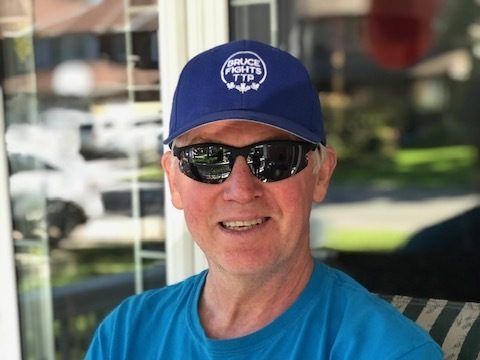what advice can you share with someone who’s received a dementia diagnosis?
i would say find out about the health of your parent and grandparents. are there things that they have or had that could have been passed on to you? and then tell your doctor. if you have symptoms that are similar, ask to be tested.
also, know that a healthy heart is a healthy brain.
is there a treatment for dementia?
i’ve tried everything that health canada has approved, but it has not had any effect. i’ve also tried cannabis, but there’s been no effect. the biggest problem is anxiety, stress, and lack of sleep. i’ve had to learn new habits. i’m no longer a multi-tasker. i have to do one thing at a time.
what are your plans for the future?
i play golf four times a week, i want to continue with that. i have a landscaped front yard, and river stones and vegetables. i want to be a super-ager — growing my gardens, enjoying my golf, my neighbours, my wife — i want to enjoy what i have.
i’m going on the
rocky mountaineer rail tour next year. it’s a very luxurious train trip through the rockies from calgary to vancouver. it’s really special. you stop in a different hotel every night, it’s about five nights, and you’re in a domed car.
it’s so important to work with what you’ve got. i’ll tell you a story quickly that [i read in] a magazine. there was this farmer who had 100 acres, then he reduced it to 50 acres, then 20, then 10, and finally he just had a window box in his room. he got the same pleasure out of that as he did the 100 acres. i want to be able to get the same pleasure out of my life.
 5 minute read
5 minute read









